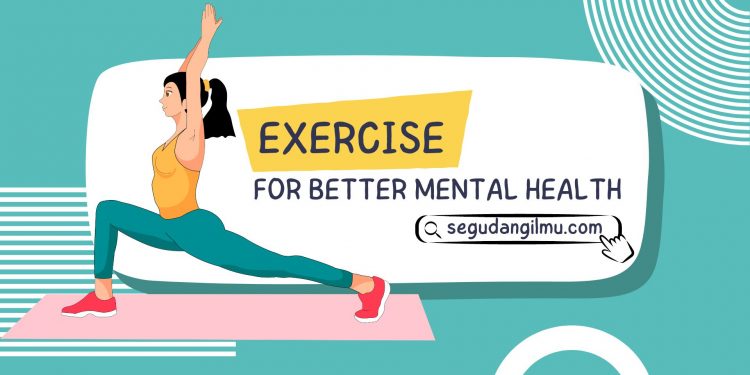Exercise for Better Mental Health— As we know, exercise has many benefits for the body. On the Department of Health website, the Directorate General of Health Services states that exercise is beneficial for lowering blood cholesterol levels, burning calories, nourishing the heart, preventing obesity and reducing the risk of diabetes mellitus. As well as the physical benefits of exercise, it is also important for mental health.
Lawrence Robinson, Jeannes Segal, Ph.D. and Melinda Smith, M.A. state that people who exercise regularly feel more energetic during the day, sleep better at night, have sharper memories and are more relaxed and positive about themselves. They also state that regular exercise has a positive effect on depression, anxiety and ADHD. It can also reduce stress, improve memory and boost mood.
A study by Guszkowska (2004) showed that aerobic-type exercise, including jogging, swimming, cycling, walking, gardening and dancing, has been shown to reduce anxiety and depression. It is explained that the improvement in mood in someone who exercises is caused by a better blood flow to the brain, which affects the hypothalamic-pituitary-adrenal (HPA) axis and thus the physiological reactivity to stress.
These physiological effects are mediated by communication between the HPA axis and several parts of the brain, including the limbic system, which regulates motivation and mood; the amygdala, which processes fear in response to stress; and the hippocampus, which plays an important role in memory formation as well as mood and motivation.
Fogarty, Happell and Pinikahana (2004) also stated that exercise is essential for people with schizophrenia. This is because of the risk of obesity due to weight gain associated with antipsychotic treatment, particularly atypical antipsychotics. The results of the study showed that patients with schizophrenia who took part in a three-month exercise programme had improved weight control, reduced blood pressure, increased perceived energy levels and increased upper body and hand grip strength.
How to get started with exercise?
For people who have never exercised before, it can be difficult to get into the habit of exercising. However, it is still possible for them to make a plan to exercise. Some of the ways that can help them include:
- Choose an activity that suits you and is obviously something you enjoy doing. The first step should not be too difficult. The most important thing is that you can do it consistently for a long time.
- Start with the easiest thing you can do and gradually improve. Varying your activities can prevent you from getting bored, so you can enjoy doing them.
- Write a plan and put it in your diary so you do not miss a day.
Remember that your motivation is to get a healthy mind and body, so just stick to your goal and don’t let anyone get in your way. PRS.



